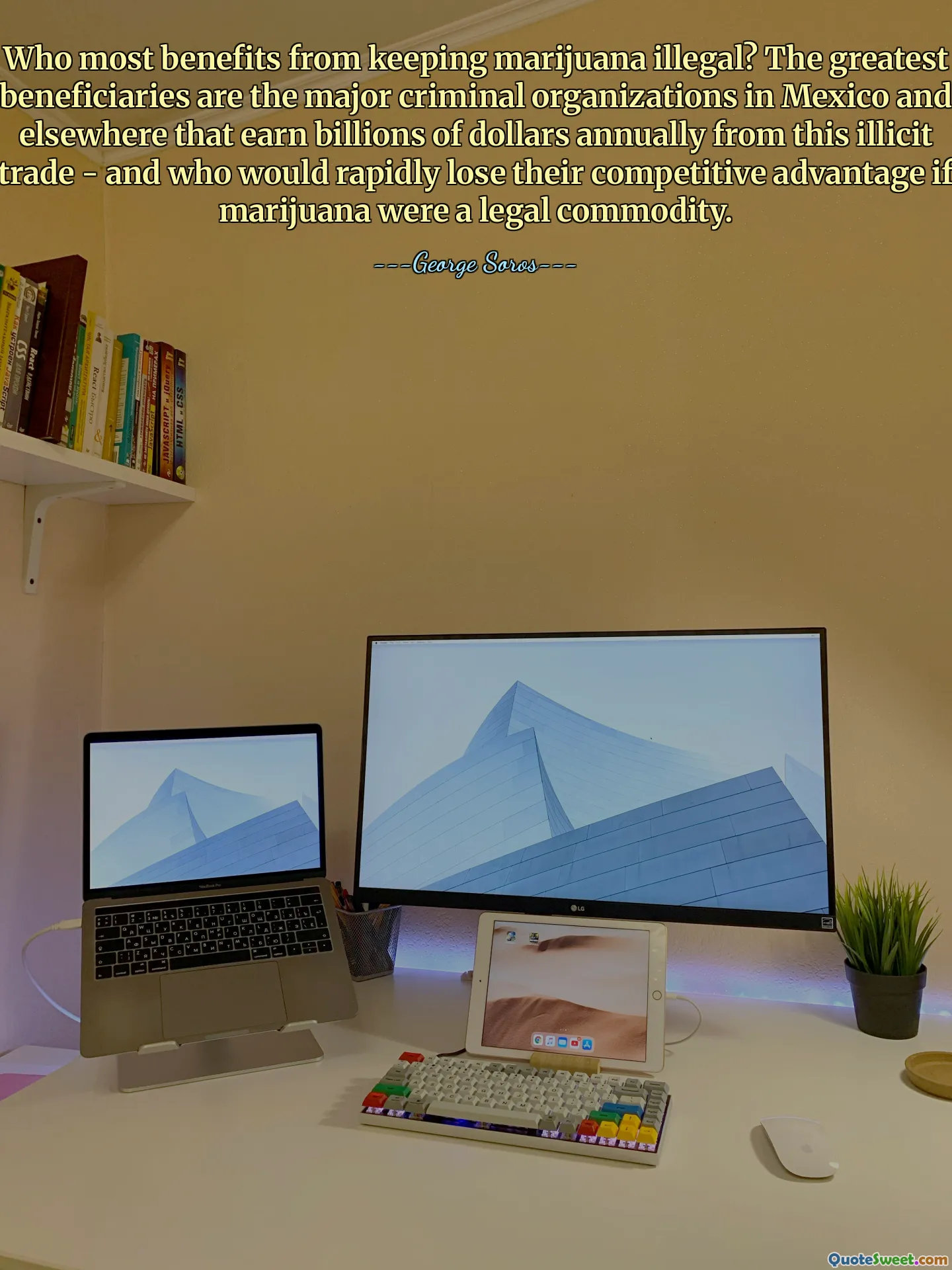
Who most benefits from keeping marijuana illegal? The greatest beneficiaries are the major criminal organizations in Mexico and elsewhere that earn billions of dollars annually from this illicit trade - and who would rapidly lose their competitive advantage if marijuana were a legal commodity.
This quote highlights the complex socio-economic consequences of drug prohibition, particularly focusing on marijuana. It suggests that prohibition fosters an illicit trade controlled by powerful criminal organizations, which profits immensely at the expense of societal well-being and legal order. The economic incentive created by illegality incentivizes these organizations to sustain their dominance, making it difficult for legal, regulated cannabis markets to develop and thrive. From an economic perspective, the prohibition acts as a barrier to entry, protecting illegal markets from legitimate competition. Moreover, legalizing marijuana could undermine the immense financial power held by criminal groups, thereby reducing violence and corruption associated with drug trafficking. The statement also encourages a broader discussion on public health, criminal justice, and economic reform. By acknowledging who truly benefits from current laws, policymakers and society can better evaluate the potential benefits of legalization, including taxation, regulation, and harm reduction. This perspective advocates for reevaluating existing drug laws through a prism of economic fairness and societal benefit rather than moral or punitive justifications. Overall, the quote challenges the reader to consider the vested interests that maintain prohibition and to question whether such laws serve the public good or primarily serve the interests of criminal syndicates.











